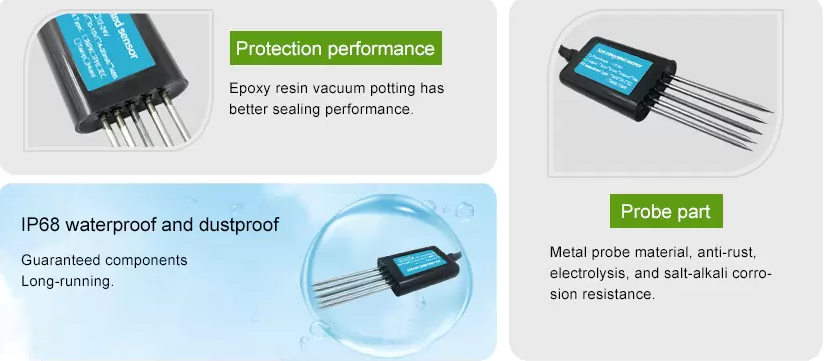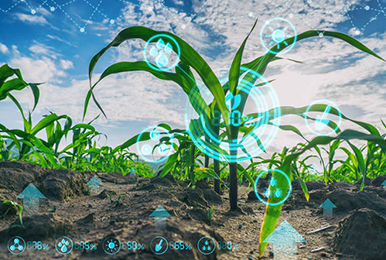Learn about Soil Moisture Sensor for Plants
Soil moisture sensor for plants are electronic devices designed to measure the amount of moisture in the soil. They play a crucial role in plant irrigation by providing accurate information about soil water content.

Importance of Soil Moisture Sensor for Plants
Maintaining appropriate soil moisture is fundamental for healthy plant growth. Insufficient or excess watering can lead to problems such as root decay, inadequate nutrient absorption, and decreased overall plant vitality. Time-consuming manual testing of soil moisture levels can be impractical, especially for gardens with multiple plants. Detecting soil moisture using smart sensors helps mitigate these challenges by providing real-time data for precise irrigation scheduling.
Methods and Technologies for Soil Moisture Sensor for Plants
Capacitive Sensors: These sensors measure soil moisture by detecting changes in electrical capacitance caused by variations in moisture content. They are affordable, easy to use, and provide accurate readings. Capacitive sensors are often used in portable handheld devices and as embedded components in automated irrigation systems.
Tensiometers: These sensors measure soil moisture by evaluating the tension or pressure exerted by water in the soil. They consist of a porous material connected to a vacuum gauge that measures soil water potential. Tensiometers offer reliable measurements and are commonly used for research purposes or in large-scale agricultural settings.
Resistance Sensors: Resistance sensors operate on the principle that moist soil conducts electricity better than dry soil. By measuring electrical resistance, these sensors determine soil moisture levels. They are cost-effective, durable, and widely used in both amateur and professional gardening applications.
Time Domain Reflectometry (TDR): TDR sensors employ electromagnetic waves to measure soil moisture. By analyzing the time taken for signals to bounce back from the soil, TDR sensors estimate soil moisture content. Though costly and complex, TDR technology provides accurate readings and is used in research labs and large-scale agricultural or horticultural settings.
Benefits of Implementing Soil Moisture Sensor for Plants
Water Conservation: By accurately monitoring soil moisture levels, smart gardening systems can optimize watering schedules, reducing water wastage and conserving this precious resource.

Improved plant health: Maintaining proper soil moisture is critical for plant health. Too little or too much water can stress plants and make them more vulnerable to diseases, pests, and other environmental stresses. Soil moisture sensors ensure that plants receive the right amount of water, promoting healthy growth and minimizing the risk of damage.
Cost savings: Over-watering not only wastes water but also adds unnecessary costs to your gardening efforts. By using moisture sensors, you can monitor soil moisture levels accurately and avoid excessive irrigation, resulting in reduced water consumption and lower overall expenses.

Time-saving: With soil moisture sensors, you no longer need to rely solely on visual cues to determine when to water your plants. The sensors provide real-time information, signaling when the soil moisture falls below a certain threshold. This automation saves time and effort, as you don’t have to manually check each plant’s moisture levels.
Environmental sustainability: Conserving water resources is essential for the environment. By using soil moisture sensors, you contribute to sustainable agriculture or gardening practices. These sensors can promote water conservation and mitigate the impact of over-irrigation on local ecosystems and groundwater reserves.
Customizable settings: Many soil moisture sensors on the market allow you to set specific moisture thresholds for different plant types or stages of growth. This flexibility ensures that plants receive optimal moisture levels based on their individual needs, leading to healthier and more productive vegetation.
Data-driven decision-making: Soil moisture sensors collect data that can be analyzed and utilized for better decision-making. By monitoring the soil moisture levels over time, you can identify patterns, understand your plants’ water requirements, and make more informed decisions regarding irrigation schedules or the implementation of other water-saving strategies.